Best Practices in Faculty Hiring
We in the UNCG College of Arts and Sciences seek to create a maximally inclusive community. Inclusivity promotes academic excellence by inspiring creativity and innovation and challenges us to stretch, learn, and grow. As one mechanism towards the goal of increasing the diversity of our faculty, this document outlines steps that search committees in the College of Arts and Sciences can take as part of the recruitment process. Additionally, search committee members are welcome to seek resources or procedural clarity about the process from the associate dean (Maura Heyn) in the College of Arts and Sciences or from the office of the General Counsel at any time in the search process.
- When defining the area of academic specialization for the ad, consider that certain areas may be more appealing to candidates from underrepresented groups than others.
- Request that applicants speak about their experience working with diverse populations in their cover letter. For example: In submitted materials, address demonstrated interest and experience in promoting student success among diverse populations of students.
The specific needs for supporting student success, including fostering inclusiveness will look different in different disciplines and may require discussion in the searching department. This discussion could center around questions such as, “What are the needs in our field, sub-discipline, and department?” “How can we promote student success and inclusiveness with this search?”
Actively seek applicants from underrepresented groups, rather than relying upon existing networks.
- Reach out to colleagues, departments, and universities who have a track record for training individuals from groups who have historically been underrepresented in specific academic disciplines.
- Use social media in a targeted manner to reach out to diverse populations.
- Contact task forces and interest groups that represent the needs of underrepresented groups within professional organizations.
- Set up a meeting with all committee members before reviewing applicants. Discuss plans for promoting inclusiveness in the search process. Discuss the results of taking the Provost’s bias testing module.
- Choose multiple criteria on which to evaluate candidates and come to agreement within the committee on these criteria in advance of reviewing applicants. Consider the various ways in which the candidate might contribute to inclusiveness when defining these criteria.
- To become more aware of biases you may have in your notions of what an ideal colleague looks like, it is helpful to take bias tests such as those recommended by the Provost’s office. Awareness of potential biases may be helpful in efforts to give all candidates full and fair evaluation.
- Take time to review the applicants (based on the parameters defined prior to the search) to avoid the tendency to quickly eliminate candidates solely based on superficial characteristics, such as the prestige of the institution where they were trained.
- In reviewing an applicant, ask yourself and your colleagues, how would this candidate best serve our students? Carefully consider inputs from our students in searches.
UNC Greensboro does not solicit or require employment applicants “to endorse or opine about beliefs, affiliations, ideals, or principles regarding matters of contemporary political debate or social action as a condition of employment” or describe their actions concerning those beliefs, but we can ask about their experience working with a diverse student population.
- UNCG’s institutional mission includes serving and supporting the success of all students, from a variety of backgrounds. How would your research, teaching, and/or community service contribute to this institutional mission?
- UNCG is a minority serving institution and our student population is comprised of individuals from a wide variety of backgrounds, including many first-generation college students. Please describe your experience, with specific examples, or interest in working with students from diverse backgrounds.
- Can you tell us about a time when you worked with a student or colleague with a background different from your own?
- As part of the interview schedule, organize meetings with colleagues and students who may be particularly able to speak to the importance of diversity on the campus and the campus environment for fostering diversity. These might be individuals outside of the specific academic department conducting the search. To identify appropriate participants for such meetings, contact the College of Arts and Sciences Dean’s Office or the Chancellor’s Fellow for Campus Climate.
- Seek to engage the candidates in discussions about their experience working with students from varied backgrounds, using comparable questions to those posed in the preliminary interviews, as appropriate.
- Provide resources to candidates:
- Embedded Inclusive Excellence, Office of the Chancellor
- Office of Intercultural Engagement
- LGBTQ Resources
- Alianza, UNCG Latino Faculty/Staff Association. Contact: Estela Ratliff, Alianza board chair, by phone at 336-334-3230 or email at [email protected].
- Women and Gender Studies (Interdisciplinary Program)
- AADS (Interdisciplinary Program)
- International and Global Studies (Interdisciplinary Program)
In preparing the list of candidates to present to the dean, departments are required to include a summary of how inclusiveness was considered in the search process and how the various candidates will contribute to/enhance the diversity of the faculty
The College of Arts and Sciences provides copies of the book “Searching for Excellence and Diversity: A Guideline for Search Committees.” Please contact the Dean’s Office for a copy. An online version of this resource can also be accessed at http://wiseli.engr.wisc.edu/docs/SearchBook_Wisc.pdf
The UNCG office of the Provost has published a handbook titled “Recruiting Diverse Faculty.” https://provost.uncg.edu/resources/recruiting-diverse-faculty/

105 Foust Building
P.O. Box 26170
Greensboro, NC 27402